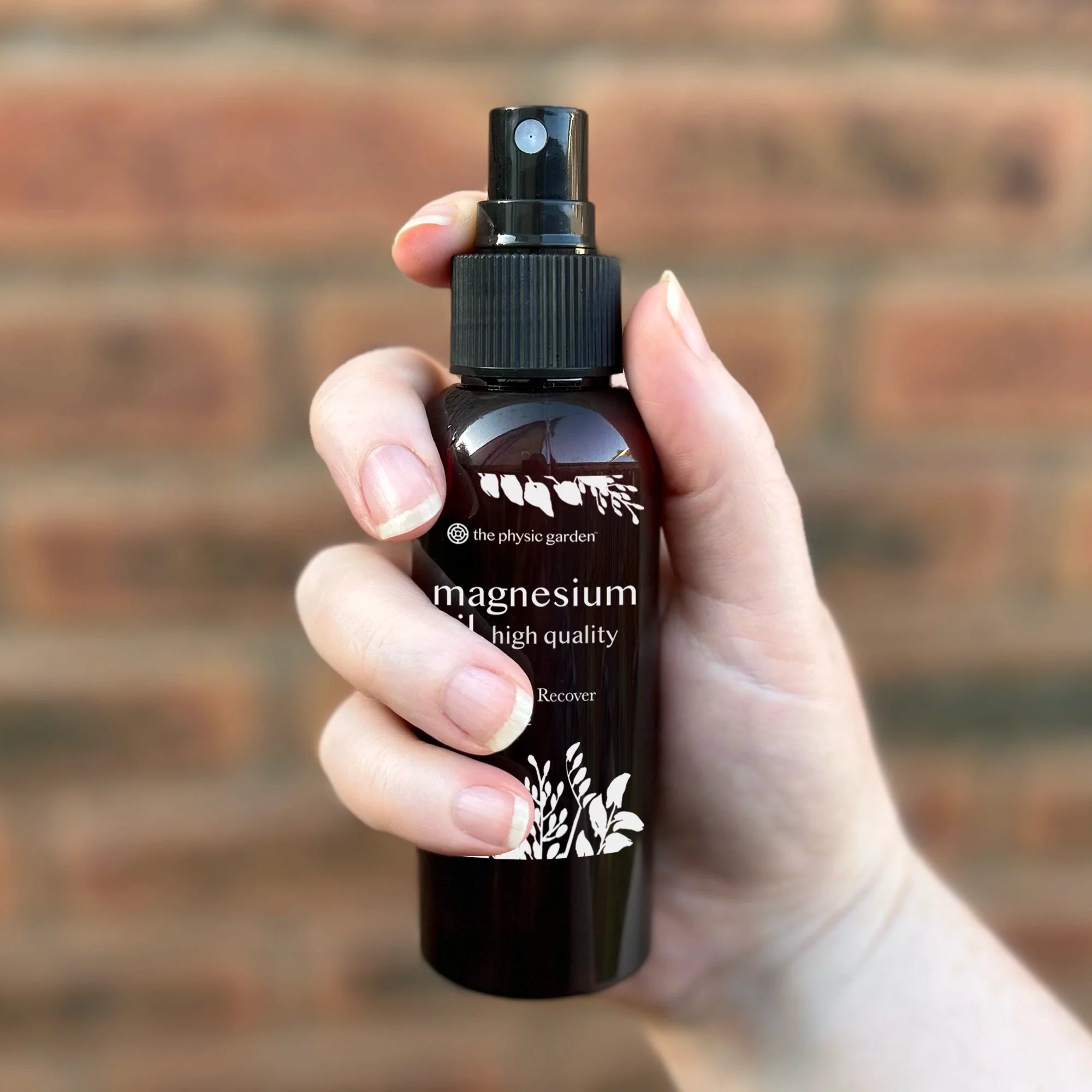- Regulation of Circadian Rhythms: Magnesium is involved in the regulation of circadian rhythms, which are the body's internal clock that controls sleep-wake cycles. It helps to synchronise these rhythms by influencing the production and release of melatonin, the hormone that regulates sleep-wake cycles. By supporting the body's natural circadian rhythms, magnesium promotes regular sleep patterns and helps to maintain optimal sleep-wake cycles. This can contribute to more consistent and restful sleep over time.
- Decreased Insomnia Risk: Research has shown that magnesium deficiency is associated with an increased risk of insomnia. Magnesium plays a critical role in the regulation of neurotransmitters and hormones involved in sleep, as well as the relaxation of muscles and the modulation of stress responses. When magnesium levels are inadequate, these processes can become dysregulated, leading to difficulties falling asleep or staying asleep. By addressing magnesium deficiency, people may reduce their risk of insomnia and experience improved sleep.
- Muscle Relaxation: Magnesium plays a crucial role in muscle function by regulating the contraction and relaxation of muscles. It acts as a natural calcium antagonist, counteracting the effects of calcium which promotes muscle contraction. By facilitating the relaxation phase of muscle activity, magnesium helps to alleviate tension and promote physical relaxation. This is particularly beneficial for individuals experiencing muscle cramps, spasms, or general muscle tightness.
- Stress Reduction: Magnesium is involved in the regulation of the hypothalamic-pituitary-adrenal (HPA) axis, which controls the body's response to stress. It helps to modulate the release of stress hormones like cortisol, preventing excessive activation of the stress response. Additionally, magnesium acts as a cofactor for enzymes involved in neurotransmitter production, such as gamma-aminobutyric acid (GABA), which has calming effects on the brain. By supporting these mechanisms, magnesium helps to calm the mind and ease anxiety, promoting a sense of relaxation and well-being.
But here's the good news, if you're experiencing a magnesium deficiency, by increasing your magnesium levels your symptoms of deficiency will resolve, and you will experience improved sleep, feel calmer and generally more relaxed. Include foods rich in magnesium into your diet daily like:
-
Spinach: This leafy green vegetable is an excellent source of magnesium, providing about 157 milligrams (mg) per cooked cup. Incorporating spinach into your diet through salads, smoothies, or cooked dishes can help boost your magnesium intake.
-
Almonds: Almonds are a nutrient-dense snack that contains a significant amount of magnesium. A one-ounce serving of almonds provides approximately 76 mg of magnesium. Enjoy almonds as a standalone snack or add them to yogurt, oatmeal, or trail mix for an extra magnesium boost.
-
Pumpkin seeds: Pumpkin seeds, also known as pepitas, are rich in magnesium and other essential nutrients. A one-ounce serving of pumpkin seeds delivers around 150 mg of magnesium. Sprinkle pumpkin seeds on salads, soups, or yogurt, or enjoy them as a crunchy snack on their own.
-
Avocado: Avocado is a creamy and delicious fruit that offers a good dose of magnesium. A medium-sized avocado contains about 58 mg of magnesium. Enjoy avocado sliced on toast, added to salads, or blended into smoothies for a nutrient-rich boost.
-
Dark chocolate: Dark chocolate is not only a delicious treat but also a good source of magnesium. A one-ounce serving of dark chocolate with high cocoa content provides approximately 64 mg of magnesium. Choose dark chocolate with at least 70% cocoa content to maximise its magnesium content while minimising added sugars.
And one of the easiest ways to boost those magnesium levels is by adding our Magnesium Oil Spray to your bedtime routine daily (it doesn't burn and isn't sticky like other brands). Every ml contains 33mg or the highest quality magnesium chloride. Find out more about it here.
We hope that by increasing your levels of magical Magnesium, you'll be able to enjoy better, more restorative sleep at night, for improved energy throughout your day.



